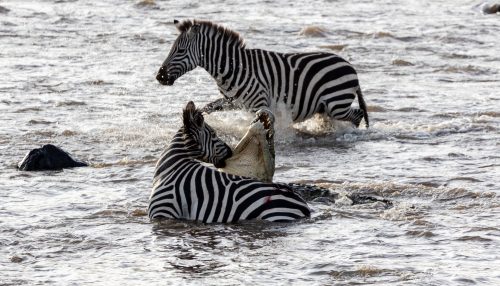
The Great Migration is truly here. The first wave of wildebeest and zebra have poured in from the Serengeti across the Sand River and into Kenya. This perennial pilgrimage in search of greener pastures is a spectacle not to be missed. From now on, the herds will only get bigger and bigger, eventually flooding the Mara landscape.
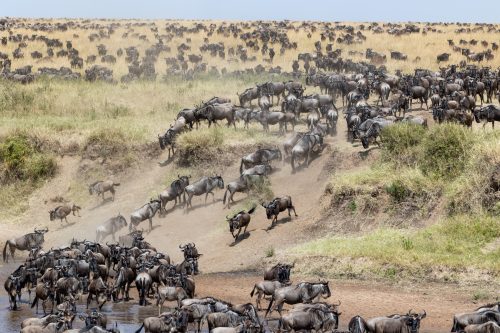
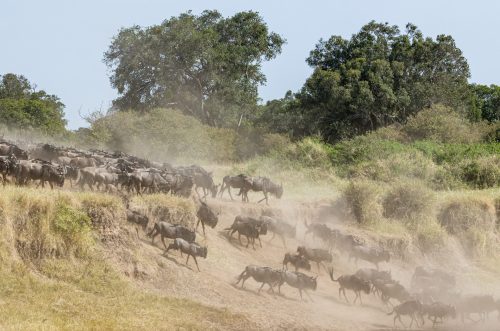
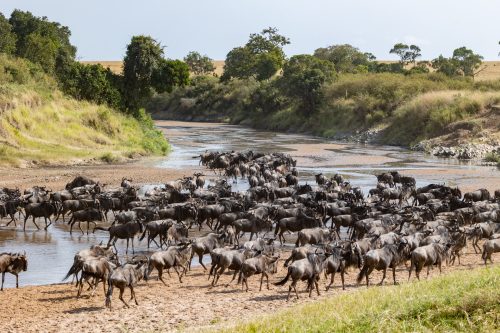
The Sand River is merely a stream compared to what awaits them at the Mara River — which they must cross to get from the greater Reserve to the Mara Triangle. Albeit slightly delayed compared to last year, the anticipation around the Migration has been growing with each passing day; now all vehicles are pointed in one direction.
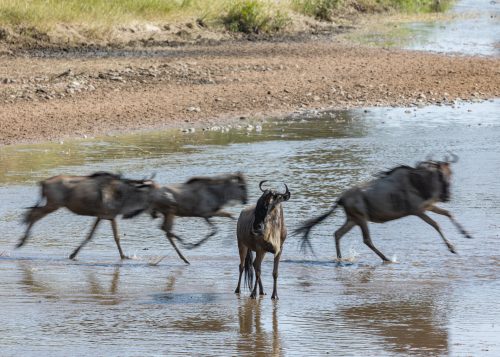
The unmistakable sound of the gnus stampeding across the plains means the river banks are the new hot destinations as people come from all over the world to watch the iconic river crossings. Some wildebeest have already made the dash across and are settling down in the Triangle for some peaceful grazing, making the most of their honeymoon stay in Kenya.
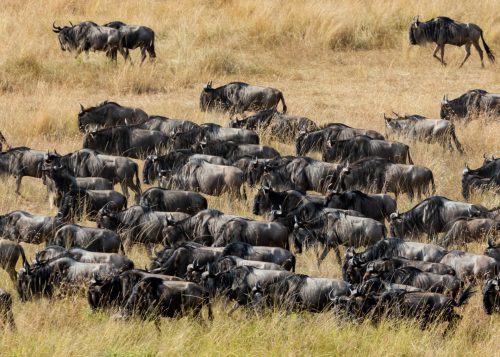
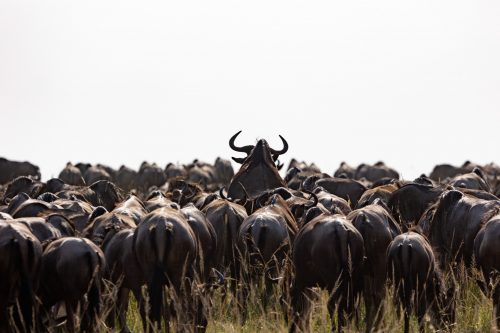
Some of our guides who have ventured deep into the greater Reserve have reported big numbers of wildebeest currently mowing their way through the plains towards the Triangle. While we wait for the mega herds, the smaller groups of zebra, always the frontrunners, have started making their way across the Mara River in some blood-rushing displays of nature. Their hesitation is more than understandable as they peer into the crocodile-infested water.
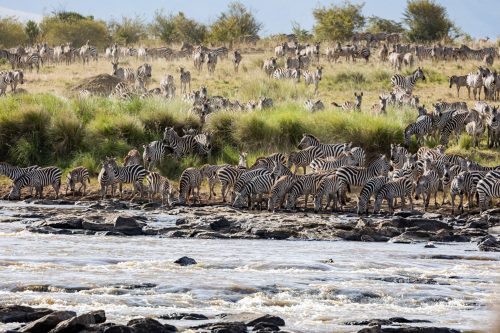
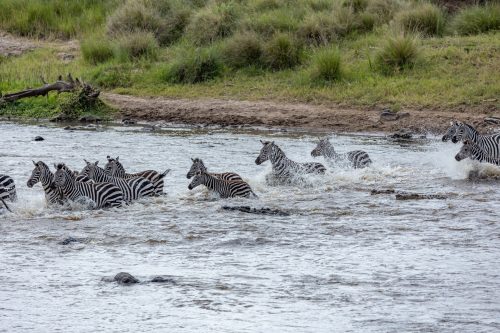
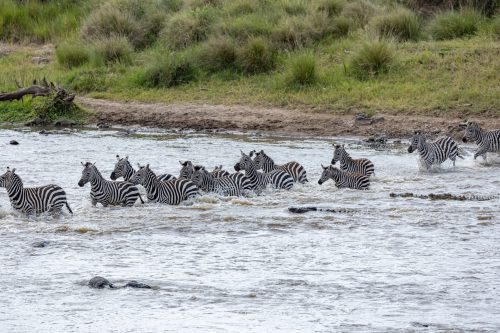
We watched for hours as the zebra cautiously came to the river's edge to drink. An unexpected splash here or a startling noise there sent them running back to safety time and again. It's hard to imagine the power of the drive that takes them across the river. With frayed nerves and potential death staring right at them, the pressure became too much and the first zebra made the daring sprint to the other side with its herd in tow.
The crocodiles made their move and suddenly there were nearly a dozen of them heading for the crossing zebras, ready to attack. Zebras are quick and strong animals with a good back kick — they have the advantage as the water is not very deep but the rocks can slow them down. It was chaos as the crocs lunged at the zebra with wide, gaping mouths. After a few near-misses, miraculously, the zebra made it across mostly unscathed. One had a particularly close shave, a nick on his belly the only reminder of the peril overcome.
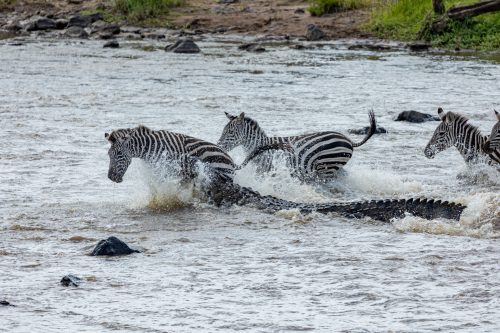
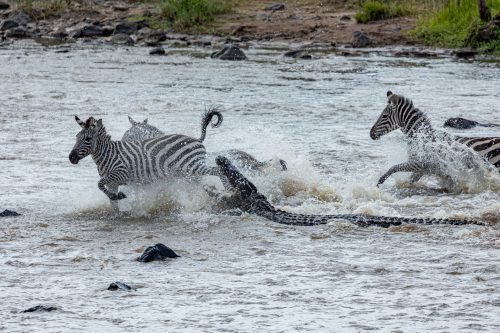
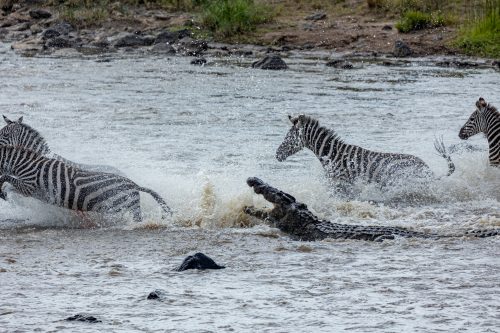
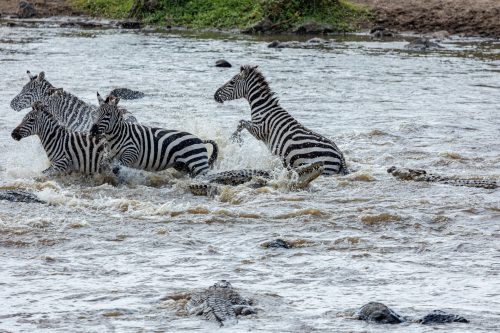
The crocs could smell blood and, having not eaten for months, their patience was wearing thin. The following day, after waiting several hours, I was ready to give up and explore some of the other delights of the Triangle. Little did I know, our guide Johnny — who has an impeccable understanding of animals — had seen something amongst the zebra herds. 'It's nearly time', he said. True to his word, the zebra gathered all the courage they could muster and made their way into the river.
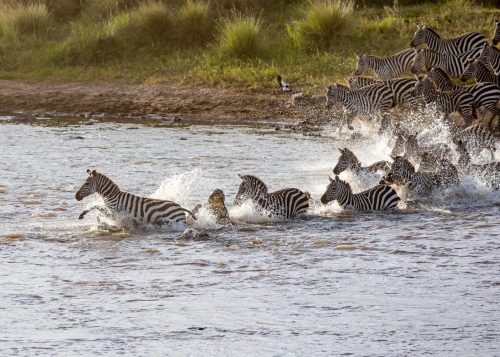
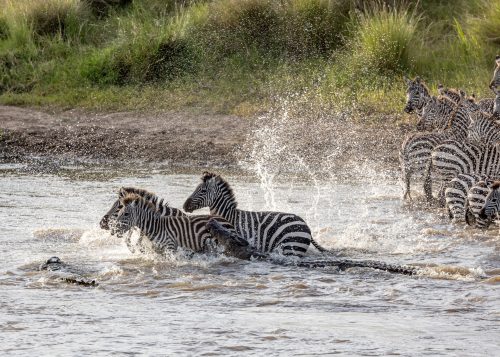
This time, the crocs would not be outwitted. As the zebra tore through the dangerous waters, a massive croc lunged and grabbed one. The others could do nothing as they watched one of their own get devoured by these ravenous reptiles. A massive pile-up ensued with every croc desperate to grab a piece of the pie, performing their unique 'death roll'.
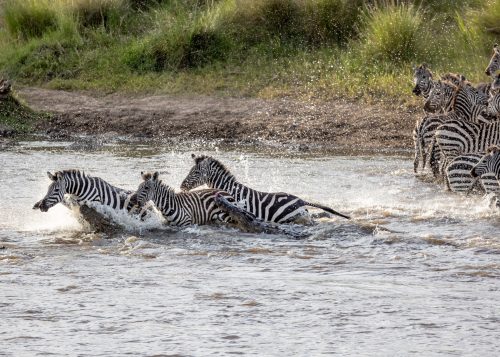
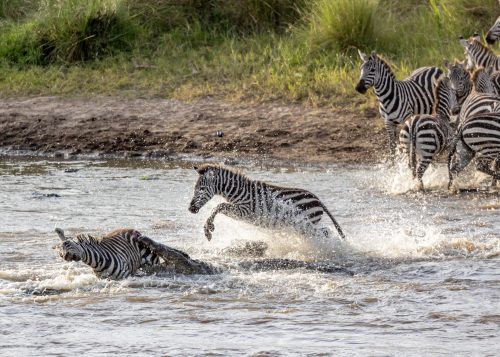
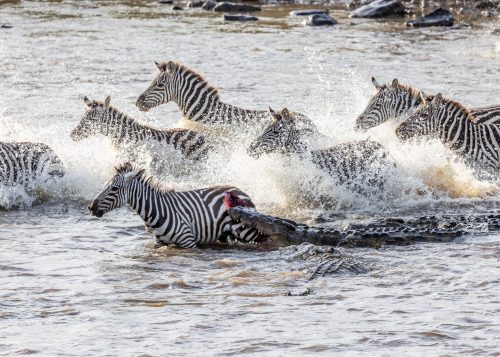
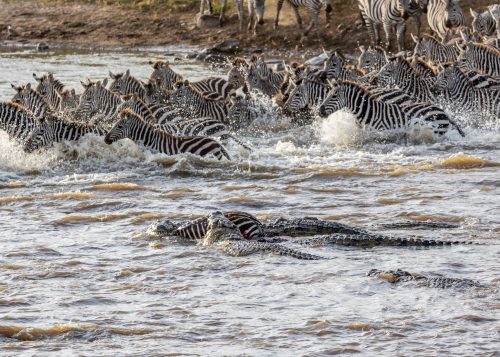
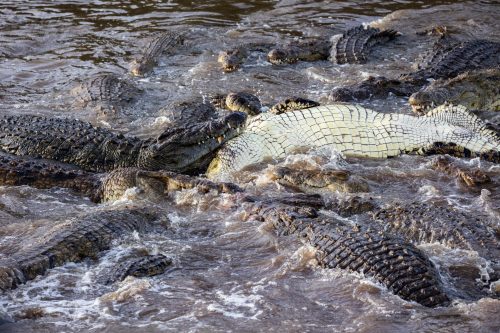
It wasn't over yet; the zebra hadn't made a hasty enough dash to the other bank and another croc seized the opportunity. Grabbing the hind leg, the croc began to spiral rendering the zebra completely immobile. Improbably, the zebra still had some fight left — in one of the most jaw-dropping scenes I have witnessed, we watched as this doomed zebra managed to give its attacker a nasty bite back. It was an incredible display of inherent survival instincts.
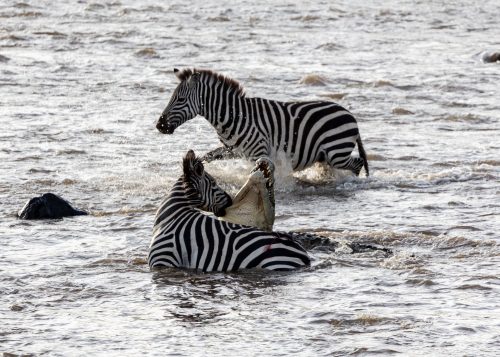
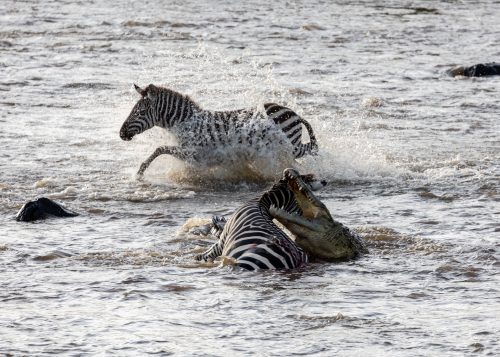
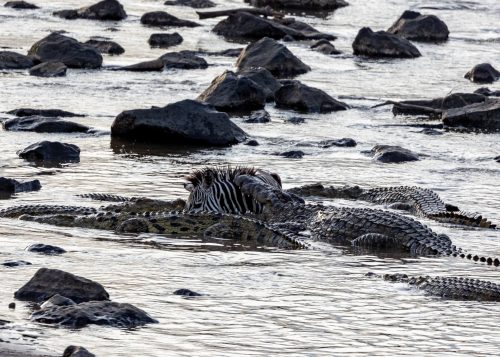
Those that make it across don’t go unnoticed by other predators. Everyone wants their pound of flesh, lions and hyenas alike. If this is just a preview, we are in for an epic season.
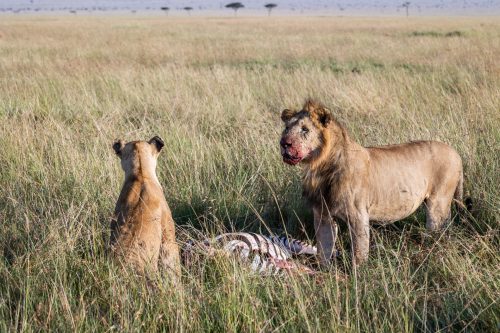
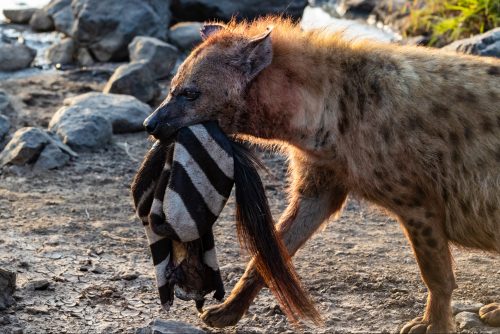
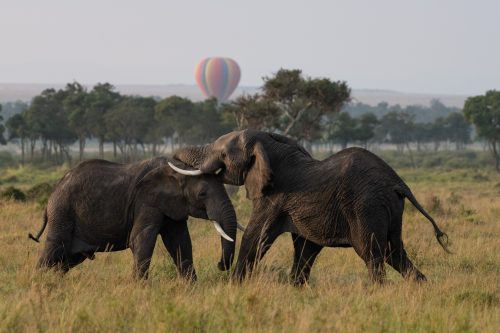
This week last year, the Migration was not the only thing causing chaos. These two elephant bulls put on quite a display as they tussled in the early morning light. Luckily, they seemed to be having a bit of fun and both parted unscathed.
Filed under: This Week at Angama
Subscribe for Weekly Stories
Comments (0):
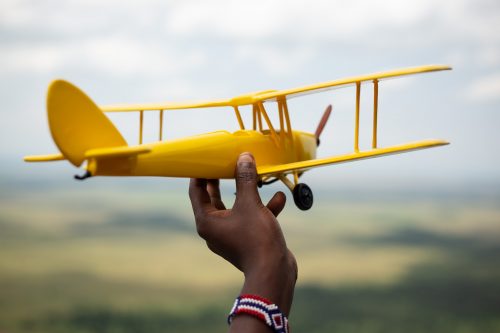
Out of Africa